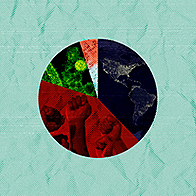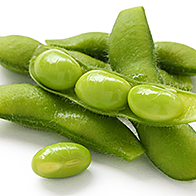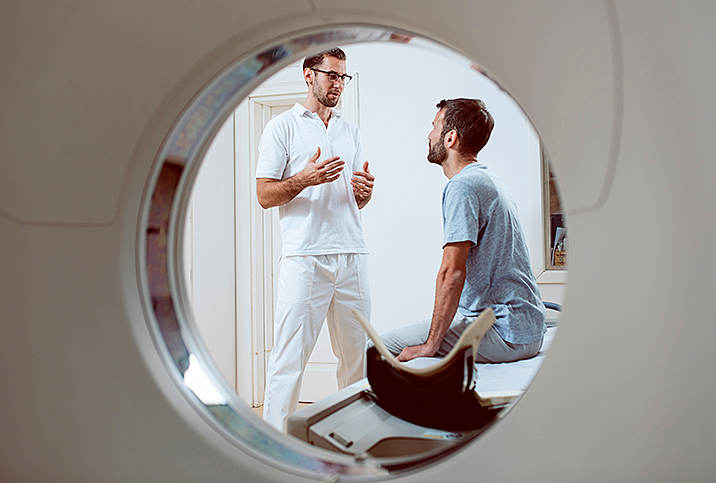Your Morning Cup of Joe May Suppress Prostate Cancer

It would be an understatement to say coffee is popular. Americans opt for coffee more than any other beverage, including water, consuming 646 million cups of coffee every day, according to research from the National Coffee Association (NCA). Thankfully, reports cited by the NCA suggest that coffee has numerous health benefits, including decreased risk for certain types of cancer, type 2 diabetes, depression, stroke and chronic kidney disease.
This is good news for any coffee drinker, but a recent study offered even more potentially positive news for men: Higher consumption of coffee may be associated with a lower risk of prostate cancer. A 2011 study suggested the biggest reduction in risk occurred with men who drank six or more cups per day.
About 1 in 8 men will be diagnosed with prostate cancer in their lifetime, according to the American Cancer Society, which estimates about 248,530 new cases and 34,130 deaths will occur in 2021.
A 2011 study suggested the biggest reduction in risk occurred with men who drank six or more cups per day.
Symptoms of prostate cancer include urinary problems such as difficulty starting, weak flow, pain when urinating and blood in the urine, as well as pain when ejaculating, blood in the semen and consistent pain in the pelvis and lower back.
"In the United States, the average age of prostate cancer diagnosis is 69," said S. Adam Ramin, M.D., medical director of Urology Cancer Specialists in Los Angeles. "After that year, the chances that a man will develop prostate cancer increase significantly. So around the age of 50, men should be receiving a regular, annual physical and screening for prostate cancer."
How does coffee help reduce the risk of cancer?
"Coffee contains molecular compounds and antioxidants that may support health and discourage cancer development," said Dan Sperling, M.D., DABR, medical director of the Sperling Prostate Center in Delray Beach, Florida. "Caffeine itself had some anticancer properties against prostate cancer cells in the lab."
Caffeic acid and chlorogenic acid are two of the antioxidants in coffee. Caffeic acid, which also has anti-inflammatory and anticarcinogenic properties, has been linked in studies for years to the inhibition of cancer cells' rapid growth.
Chlorogenic acid aids in the metabolic process, helping people lose weight and lower blood pressure, which can combat other factors that increase the risk of developing prostate cancer.
'Coffee contains molecular compounds and antioxidants that may support health and discourage cancer development.'
Other studies have revealed that caffeine of any kind, not just from coffee, has anticancer properties.
Does decaf coffee reduce the risk of cancer, too? Fortunately, for shunners of caffeine, the answer is yes. Sperling pointed out that the cancer-fighting components in coffee still exist in decaffeinated coffee, meaning you don't have to load up on caffeine to receive coffee's antioxidant and anti-inflammatory benefits.
Anti-inflammatory components are especially vital, he said.
"Obesity, lack of exercise and coexisting medical conditions that promote chronic inflammation are red flags for the development of more dangerous prostate cancer," Sperling said.
Age is the No. 1 risk factor
Obviously, just drinking more coffee won't guarantee a life free of prostate cancer. The American Cancer Society identified age as the primary risk factor for prostate cancer, with the risk increasing as men get older.
"In his 20s, a man often feels invincible, and statistically speaking, he can seem to be. But there are plenty of lifestyle factors that can tip his health scales in the wrong direction," Ramin warned. "At this age, maintaining normal body weight and ensuring exercise and proper nutrition as a priority is prudent."
Ramin emphasized that as men get older, they should continue to monitor their health with regular screenings, prioritizing those related to cholesterol, blood pressure and diabetes.
"While these concerns may be seemingly unrelated to prostate cancer risk, they can be, especially as men age," he said. "A preexisting diabetes diagnosis can put a man at a higher risk of advanced prostate cancer, as well as a nearly 30 percent increase in death from prostate cancer."
Reduce the risk of prostate cancer
While nothing can guarantee you won't develop cancer, certain lifestyle changes can improve your chances.
Prostate cancer shares a direct link with a man's overall health, especially his diet and weight. Other risk factors include family history, race and ethnicity, geographic location, exposure to toxins and genetic mutations, especially to the BRCA1 and BRCA2 genes, which are best known for their role in breast cancer.
Sperling and Ramin both identified a few simple lifestyle changes men can make if they want to reduce their risk of prostate cancer: Eat a healthy, plant-based diet; exercise regularly; practice healthy methods of stress management; and develop healthy social relationships.
As with any form of cancer, the earlier you detect prostate cancer, the more likely you are to overcome it.
Once a man turns 50—younger for people at higher risk—he should strongly consider adding regular prostate exams to his health checks. As with any form of cancer, the earlier you detect prostate cancer, the more likely you are to overcome it.
For men who are concerned about prostate cancer, making these lifestyle choices while young can greatly improve their chances of avoiding the disease later in life. If you're already drinking gallons of coffee each day, there's no real reason to stop, but Sperling cautioned not to overdo it. Too much caffeine can cause issues with insomnia, digestion, blood pressure and anxiety. The silver lining is you can always switch to decaf.
Either way, it's reassuring to know those frequent café trips may benefit your long-term health.




















